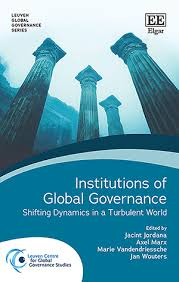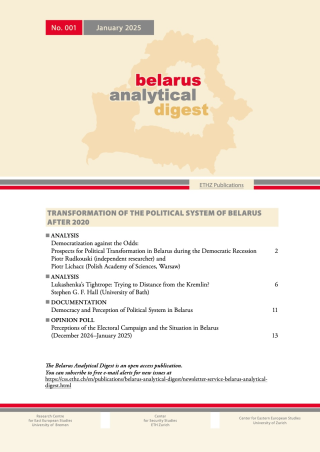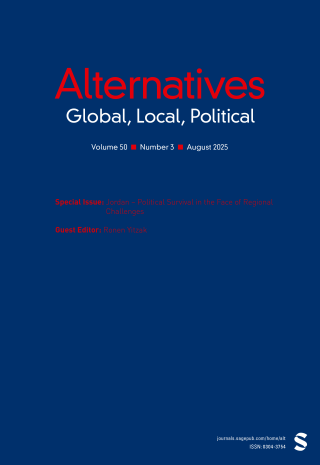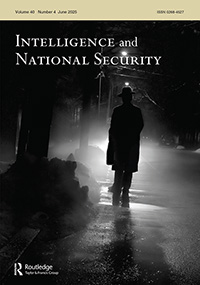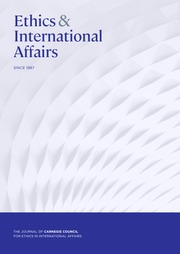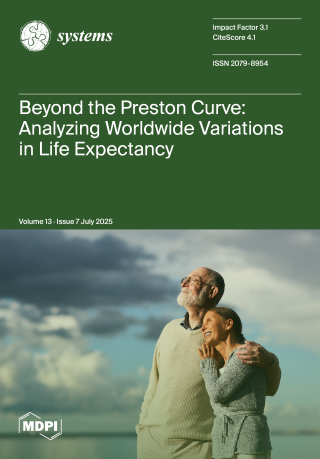-
2 Nov 2025 • Preprint • Social Science Research Network
-
23 Oct 2025 • Book Chapter • Institutions of Global Governance: Shifting Dynamics in a Turbulent World
Fiddlers on the roof? International organisations in the international investment agreement regime as traditional global governance
AbstractThe main elements of global investment governance include decentralised networks of thousands of international investment agreements (IIAs) and ad hoc investor-state dispute settlement tribunals. Nevertheless, a handful of international organisations (IOs) participate in this IIA regime, striving to shape its rules and direction. This chapter seeks to assess their role
… show more -
Oct 2025 • Journal Article • Belarus Analytical Digest
Migration Crisis on the Belarus-EU Border
AbstractThe 2021 Belarus/Poland border migration crisis exemplifies a “humanitarian dilemma,” in which actors’ efforts to expose human rights abuses unintentionally intensify them. After the EU sanctions, Belarus deliberately facilitated migrant flows from the Middle East and Africa to its EU borders, weaponizing asylumseekers to pressure the European Union. Human rights groups
… show more -
12 Sep 2025 • Journal Article • Alternatives
The Limits of Expulsion: Institutional Response to Russia's Defection From the International Institutional Order
AbstractWhy are states rarely expelled from international institutions, even after blatantly defying the principles they were incorporated to uphold? This article examines this puzzle through the case of Russia’s continued membership in key international institutions, including the G7, WTO, G20, the Council of Europe, and the International Space Station, following its 2014
… show more -
3 Sep 2025 • Journal Article • Survival
Failure of Containment: Israel’s Gaza Withdrawal After 20 Years
AbstractIsrael’s 2005 disengagement from Gaza is increasingly remembered as a failed peace initiative. Recently, Israeli commentators have even argued that the policy directly precipitated the Hamas-led attacks of 7 October 2023. Such interpretations are historically inaccurate and are designed to advance the Israeli far right’s contemporary goals in the West Bank and Gaza. The
… show more -
1 Sep 2025 • Preprint • Social Science Research Network
Globalization and the Hinterland: International Trade and the Rural-Urban Divide
AbstractThe growing political divide between rural and urban regions is often attributed to rural deindustrialization and import competition in manufacturing. Yet this cleavage emerged in many countries well before rural industrialization, pointing to underlying economic forces that existing accounts have overlooked. We argue that comparative advantage in agriculture is one
… show more -
27 Aug 2025 • Journal Article • American Journal of Political Science
Electoral responses to economic crises
AbstractHow do voters respond to economic crises: Do they turn against the incumbent, reward a certain political camp, polarize to the extremes, or perhaps continue to vote much like before? Analyzing extensive data on electorates, parties, and individuals in 24 countries for over half a century, we document a systematic pattern whereby economic crises tend to disproportionately
… show more -
24 Aug 2025 • Journal Article • Intelligence and National Security
Introduction: rethinking strategic warning and intelligence failure in an era of global transformation
AbstractThis special issue of Intelligence and National Security examines the persistence of strategic surprise and the limitations of existing early warning frameworks in an era of geopolitical volatility. Despite decades of scholarly and institutional focus, intelligence failures continue to occur across tactical, operational, and strategic levels. The articles in this issue
… show more -
22 Aug 2025 • Journal Article • Ethics & International Affairs
Under Cover: Substituting Formal IOs during Hard Times
AbstractRecent times have been hard for global governance, not least for formal intergovernmental organizations (FIGOs). Given changing conditions and their inability to adapt, many observers argue that FIGOs are drifting and losing ground to low-cost institutions (LCIs). We argue that this widespread perception is incomplete and that it dismisses too quickly the durability of
… show more -
1 Aug 2025 • Journal Article • Systems
Orchestrating Power: The Cultural–Institutional Nexus and the Rise of Digital Innovation Ecosystems in Great Power Rivalry
AbstractThis article examines how digital innovation ecosystems have emerged as strategic institutions of power in contemporary world politics. It argues that, unlike Cold War technological rivalries driven by centralized, state-led control, today’s digital competition depends on states’ capacity to orchestrate scalable, multistakeholder ecosystems. Using a cultural–institutional
… show more


